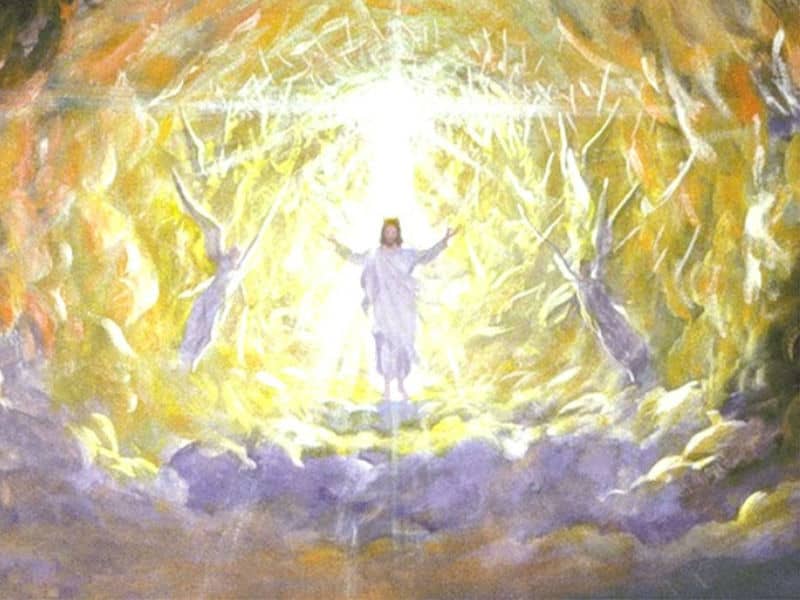Strangely enough, while performing her duties as clergywoman for a mainline Protestant denomination-the Evangelical Lutheran Church in America--with a liberal reputation, Ireland gradually found herself becoming ever more conservative in her theology. "I found that people wanted to hear more than 'I'm okay, you're okay,'" she says. "People really wanted to hear about sin and forgiveness. They were longing for the message that only the church can give." Her newfound orthodoxy left her increasingly disturbed with what she viewed as the overly accommodating moral positions of her Lutheran denomination, which--among other things--covers abortion procedures through the first 20 weeks of pregnancy as a health benefit for its clergy. This, along with Pope John Paul II's pro-life witness, prompted her to revisit the faith of her childhood. A careful study of the early church fathers convinced her that it was time to come back to Catholicism. "I wanted to be a part of the apostolic church again," Ireland says.
The huge post-Vatican II exodus of American Catholics to Protestantism is well known. Social surveys suggest that the Catholic Church has lost several million members to various Protestant churches, especially evangelical churches, over the last 30 years. Nevertheless, the demographic dynamic between Catholicism and Protestantism is in some ways shifting back--as Ireland's experience suggests.
He adds: "We're seeing the first signs of an avalanche of conversions and re-conversions." Indeed, there are signs that a growing stream of "reverts" (ex-ex-Catholics like Ireland, who now works with the Catholic campus ministry at Princeton University) and brand-new converts is flowing into the Church. In 1998, more than 88,000 Protestants were received into the Catholic Church. While the vast majority of these came into the church in order to join a Catholic spouse, the ranks of the "devoted"--converts--committed Protestants entering the Catholic Church strictly for religious reasons--is growing. Since 1990, more than 200 Protestant clergy have left their careers to embrace Catholicism, according to the Coming Home Network, Coming Home Network, a lay ministry serving Protestants interested in becoming Catholics.
What accounts for this not insignificant exodus from Protestantism to Catholicism at the turn of the millennium? The collapse of Protestant morality in American culture, the centrifugal drift of evangelical Protestantism as it subdivides constantly into competing churches, and the upward socioeconomic mobility of evangelical Protestants themselves have all played key roles.
Mainline Protestantism has given tacit, and sometimes explicit, approval to the poisonous fruits of the 1960s--from free love to feminism in its most radical manifestations. Although this accommodation strategy has devastated the theological and moral integrity of the mainline churches, it has, at least in one respect, served clearly providential purposes. For men and women of serious faith like Ireland, the moral and theological confusion they have found in mainline Protestantism is usually the reason they start thinking about heading to Rome.
Jeffrey Finch's crisis of mainline faith came from interacting with his colleagues: Methodist ministers in southern New Jersey. "I remember sitting at annual conference meetings and listening to dilettantes blather on about revisiting doctrinal issues that had been settled centuries ago by ecumenical councils," he recalls. "They were just making it up as they went along. Whatever its historic origins, Methodism had become a do-it-yourself religion."
For evangelicals who end up Catholic, two factors encourage them to reconsider their former commitment to their Protestant faith. First, many evangelicals become dissatisfied with the doctrinal and ecclesiastical division that is endemic to Protestantism. Kristin Franklin went to Guatemala in 1992 as a Protestant missionary intent on "[rescuing] Catholics from the darkness of their religion's superstition and man-made traditions," as she wrote in a recent article about her conversion for Envoy, a Catholic magazine. But she left the mission field disillusioned. On theological issues from infant baptism to charismatic gifts, she found almost as many opinions as there were churches. She remembered thinking: "The truth doesn't look like that."
But in the final analysis, the Catholic Church's claim to be the church where the fullness of the faith resides--extravagant as it may seem to many Protestant believers--exerts a kind of intellectual, spiritual, and moral gravity on the lives of many Protestants who are seeking more depth to their religious experience. Thomas Howard, an evangelical who took the "Canterbury trail"--a fling with Anglicanism-- before ending up in the Catholic Church in 1985, conveys a sense of Catholicism's powerful force in his book "Evangelical Is Not Enough: Worship of God in Liturgy and Sacrament" (Ignatius Press), published in 1984 when he was still an Anglican:
"The question, What is the church? becomes, finally, intractable; and one finds oneself unable to offer any very telling reasons why the phrase "one, holy, catholic, and apostolic," which we all say in the [Nicene] Creed, is to be understood in any way other than the way in which it was understood for 1500 years."

